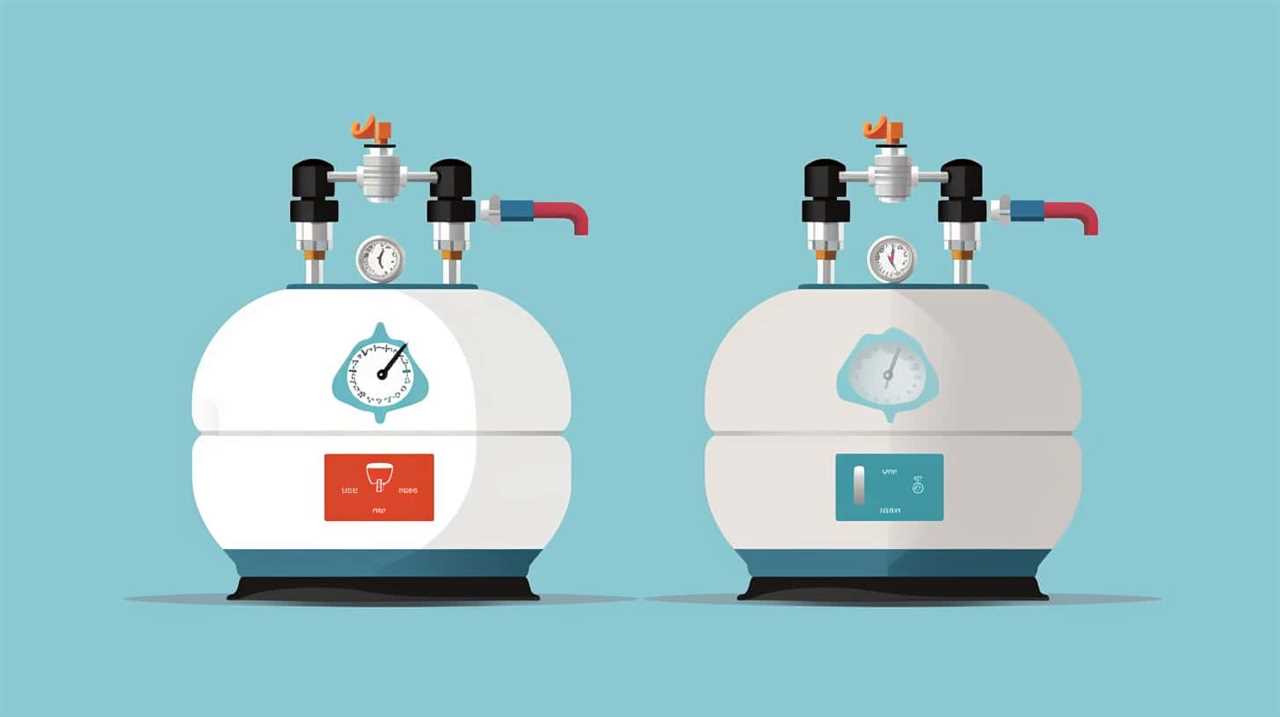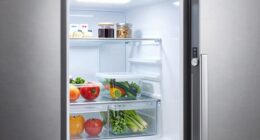Have you ever thought about which electrical appliances are the most expensive to operate? We have the data-driven responses for you.
In this article, we’ll break down the top culprits that could be draining your wallet every month. From air conditioners to electric water heaters, we’ll explore the energy-hungry appliances that could be costing you a fortune.
So, sit back, relax, and get ready to master your energy usage as we reveal the most expensive appliances to run.
Key Takeaways
- Air conditioners are one of the most expensive electrical appliances to run.
- Electric water heaters are also one of the most expensive appliances to run.
- Electric clothes dryers can be costly to operate as well.
- Space heaters consume a significant amount of energy and can be expensive to run.
Air Conditioners
Air conditioners can be one of the most expensive electrical appliances to run. However, there are several cost saving tips and energy efficiency options that can help mitigate these expenses.

First, consider investing in an energy-efficient air conditioner. Look for models with a high Seasonal Energy Efficiency Ratio (SEER) rating, as they consume less energy.
Additionally, proper installation and regular maintenance of the air conditioner can significantly improve its efficiency. Regularly clean or replace the air filters to ensure optimal airflow and reduce energy consumption.
Utilizing programmable thermostats can also help save costs by adjusting temperature settings based on your usage patterns.
Finally, consider alternative cooling methods, such as using ceiling fans or natural ventilation, to reduce reliance on air conditioning.
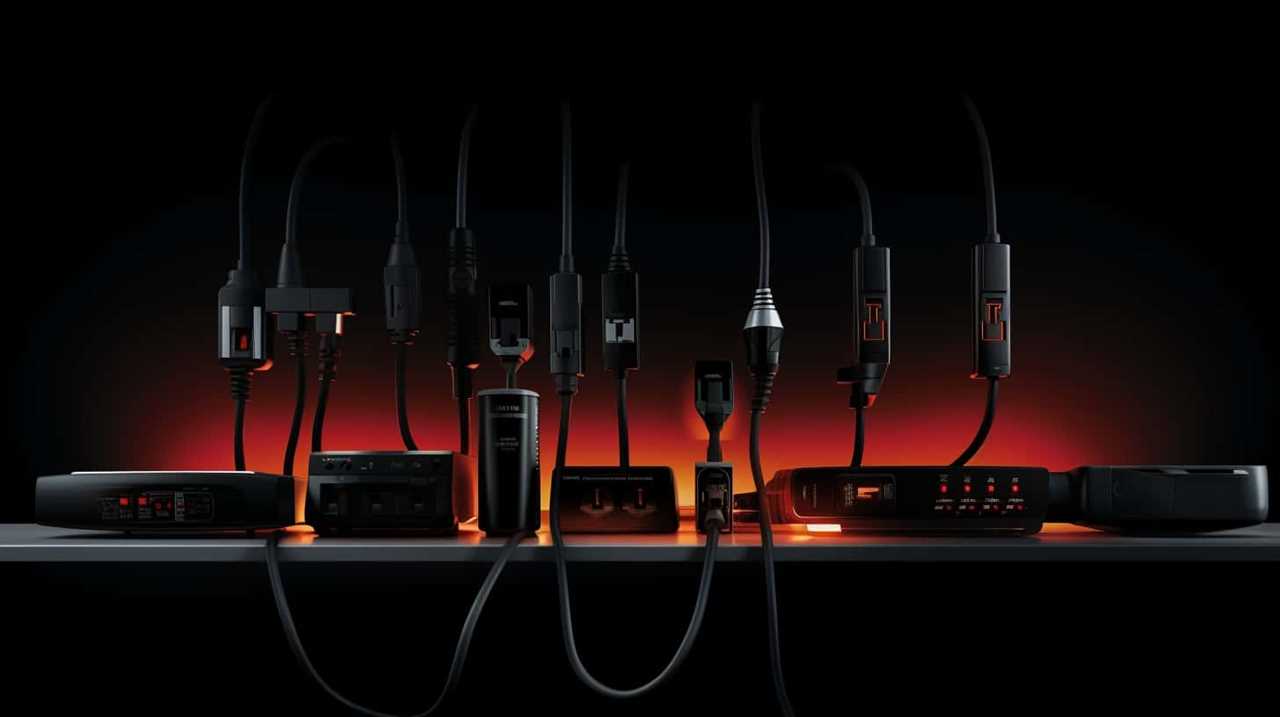
Electric Water Heaters
When it comes to electrical appliances, electric water heaters are often overlooked but can be one of the most expensive to run. The energy consumption of these appliances can have a significant impact on monthly utility bills.
However, there are energy-efficient alternatives and cost-saving measures that can be implemented to reduce the financial burden of electric water heaters.
Energy-Efficient Alternatives
Using an electric water heater with energy-efficient alternatives can significantly reduce our monthly electricity bills.
One such alternative is energy-efficient lighting, which can save up to 75% of lighting energy compared to traditional incandescent bulbs. By replacing incandescent bulbs with LED or CFL lights, we can enjoy the same level of brightness while consuming less electricity.

Another energy-saving option is the use of smart thermostats, which can optimize our water heater’s energy consumption by adjusting temperature settings based on our usage patterns. These thermostats can also be programmed to lower the water heater’s temperature during periods of low demand, further reducing energy waste.
By adopting these energy-efficient alternatives, we can make a substantial impact on our monthly electricity expenses.
Now, let’s explore other cost-saving measures.
Cost-Saving Measures?
To save on electricity costs, we can implement cost-saving measures for our electric water heaters. Here are some energy-saving tips to help reduce electricity bills:

- Lower the temperature: Set the thermostat on your water heater to a lower temperature, around 120 degrees Fahrenheit (49 degrees Celsius). This will reduce energy consumption and still provide hot water for your needs.
- Insulate your water heater: Wrapping your electric water heater with an insulating blanket can help retain heat and reduce standby heat loss, resulting in lower energy usage.
- Install a timer: By using a timer, you can schedule your water heater to operate during off-peak hours when electricity rates are lower, saving you money.
- Reduce hot water usage: Implementing water-saving measures like taking shorter showers, fixing leaks, and using efficient faucets and showerheads can significantly reduce hot water consumption.
Electric Clothes Dryers
Electric clothes dryers are one of the most expensive appliances to run in terms of electricity consumption. To ensure optimal performance and energy efficiency, regular maintenance is essential. This includes cleaning the lint trap after each use and inspecting the vent for any blockages. Additionally, using energy-efficient drying techniques can help reduce electricity consumption. For example, using the moisture sensor feature instead of timed drying can prevent over-drying and save energy. Another energy-saving tip is to dry similar fabrics together to prevent over-drying lighter items. By following these maintenance and energy-saving techniques, you can minimize the electricity consumption of your electric clothes dryer and save on your energy bills.
| Maintenance Tips | Energy-Efficient Drying Techniques |
|---|---|
| Clean the lint trap | Use the moisture sensor feature |
| Inspect the vent | Dry similar fabrics together |
| Avoid over-drying lighter items |
Space Heaters
When it comes to space heaters, understanding the cost of operation, energy consumption rates, efficiency, and alternatives is crucial.
Space heaters can be expensive to run, as they consume a significant amount of electricity.
It’s important to consider the energy efficiency of a space heater and explore alternative heating options to minimize costs and reduce energy consumption.

Cost of Operation
Space heaters can be one of the most expensive electrical appliances to operate. When considering the cost of operation for space heaters, it’s crucial to understand their energy consumption rates. Here are some key points to consider:
- Energy Consumption Rates:
- Space heaters have high energy consumption rates compared to other electrical appliances.
- The amount of energy consumed by a space heater depends on its wattage and the duration of usage.
- Electric space heaters typically consume between 750 to 1500 watts per hour.
- Continuous usage of space heaters can significantly impact your monthly electricity bill.
Understanding the cost of operation for space heaters is essential in managing energy expenses. However, energy consumption rates alone don’t tell the whole story. In the subsequent section, we’ll delve deeper into the various factors that influence the overall energy consumption of electrical appliances.
Energy Consumption Rates
One of the most significant factors to consider when determining the cost of operation for electrical appliances is their energy consumption rates.
When it comes to space heaters, understanding their energy consumption rates is essential for reducing electricity bills and implementing energy-saving tips. Space heaters can consume a significant amount of electricity, especially if used for long periods or in larger rooms.

By being mindful of their energy consumption rates, individuals can make informed decisions about how and when to use these appliances. Understanding the energy consumption rates can also help individuals explore alternative heating methods that are more efficient and cost-effective.
In the next section, we’ll discuss the importance of efficiency and alternatives in further reducing electricity bills.
Efficiency and Alternatives
To further reduce electricity bills and explore more efficient and cost-effective heating methods, we need to consider the efficiency and alternatives of space heaters. When it comes to energy-saving tips, space heaters can be a viable option.
Here are two sub-lists to delve deeper into this topic:

Advantages of Space Heaters:
- Energy Efficiency: Space heaters are designed to heat specific areas, ensuring targeted heating and reducing energy waste.
- Cost Savings: By using space heaters, you can avoid heating the entire house, resulting in significant cost savings on your electricity bill.
Renewable Energy Sources for Space Heaters:
- Solar Power: Consider installing solar panels to power your space heater. Solar energy is a clean and renewable source that can help reduce your carbon footprint.
- Geothermal Heating: Utilize the Earth’s natural heat through geothermal systems to power your space heater. This alternative energy source is sustainable and environmentally friendly.
Electric Ovens and Stoves
Electric ovens and stoves can be one of the most expensive appliances to run in our homes. When it comes to energy consumption, electric cooktops and microwave ovens are much more energy-efficient options. To put things into perspective, let’s take a look at the table below, which compares the average energy consumption of various cooking appliances:
| Appliance | Energy Consumption (per hour) |
|---|---|
| Electric Oven | 2.3 kWh |
| Electric Cooktop | 1.4 kWh |
| Microwave Oven | 0.9 kWh |
As you can see, electric ovens consume significantly more energy compared to electric cooktops and microwave ovens. This is mainly due to the longer cooking times and higher heat requirements of electric ovens. Therefore, if you’re looking to reduce your energy costs, opting for alternative cooking methods like electric cooktops or microwave ovens can be a wise choice. Moving on to the next topic, let’s explore the energy consumption of desktop computers.

Desktop Computers
Now let’s talk about desktop computers, which can also contribute to high energy consumption in our homes. When it comes to desktop computer power usage, there are a few key factors to consider.
Here are two important points to keep in mind:
- Processor Efficiency: The type of processor in your desktop computer can greatly impact its power consumption. Processors with higher clock speeds and more cores tend to consume more energy. Opting for a processor that strikes a balance between performance and power efficiency can help reduce energy usage.
- Energy Efficient Computing Options: In recent years, manufacturers have been focusing on producing energy-efficient desktop computers. These systems are designed to consume less power without compromising performance. Look for desktop computers that are ENERGY STAR certified or have received high Energy Efficiency Ratings (EER) to ensure energy savings.
With these considerations in mind, let’s now move on to discussing the power usage of gaming consoles.
Gaming Consoles
When it comes to gaming consoles, we should be mindful of their energy consumption. Gaming consoles are not only known for their high-performance gaming capabilities but also for their power-hungry nature. Understanding the energy consumption of different gaming consoles can help us make informed decisions when purchasing one. Below is a table comparing the prices and energy consumption of popular gaming consoles:

| Gaming Console | Price (USD) | Energy Consumption (W) |
|---|---|---|
| Xbox Series X | $499 | 315 |
| PlayStation 5 | $499 | 350 |
| Nintendo Switch | $299 | 10-18 |
| Xbox One X | $399 | 245 |
As seen in the table, both Xbox Series X and PlayStation 5 have similar prices but differ in energy consumption, with the PlayStation 5 consuming more power. On the other hand, the Nintendo Switch stands out with its lower energy consumption, making it a more energy-efficient option. It is essential to consider both the price and energy consumption of a gaming console to make an informed decision that suits our needs and budget.
Refrigerators and Freezers
Moving on to refrigerators and freezers, we should be mindful of their energy consumption as we continue our exploration of the most expensive electrical appliances to run. When it comes to these essential appliances, proper maintenance and energy-saving tips can significantly reduce their operating costs. Here are some key points to consider:
- Refrigerator Maintenance:
- Keep the condenser coils clean to ensure optimal cooling efficiency.
- Regularly check the door seals for any leaks or gaps that may let cold air escape.
- Energy Saving Tips:
- Set the temperature to the recommended level (around 37°F for the fridge and 0°F for the freezer).
- Avoid placing hot or warm food directly into the fridge, as it causes the appliance to work harder.
- Defrost the freezer regularly to prevent ice buildup and maintain its efficiency.
Frequently Asked Questions
Are There Any Energy-Efficient Options Available for Air Conditioners?
There are energy-efficient options available for air conditioners. Using energy efficient air conditioners has numerous benefits, including lower energy consumption and reduced electricity bills.
How Does the Size of an Electric Water Heater Affect Its Energy Consumption?
The size of an electric water heater greatly impacts its energy consumption. Larger water heaters require more electricity to heat up and maintain the temperature, resulting in higher energy bills. It is crucial to consider efficiency when choosing a water heater.
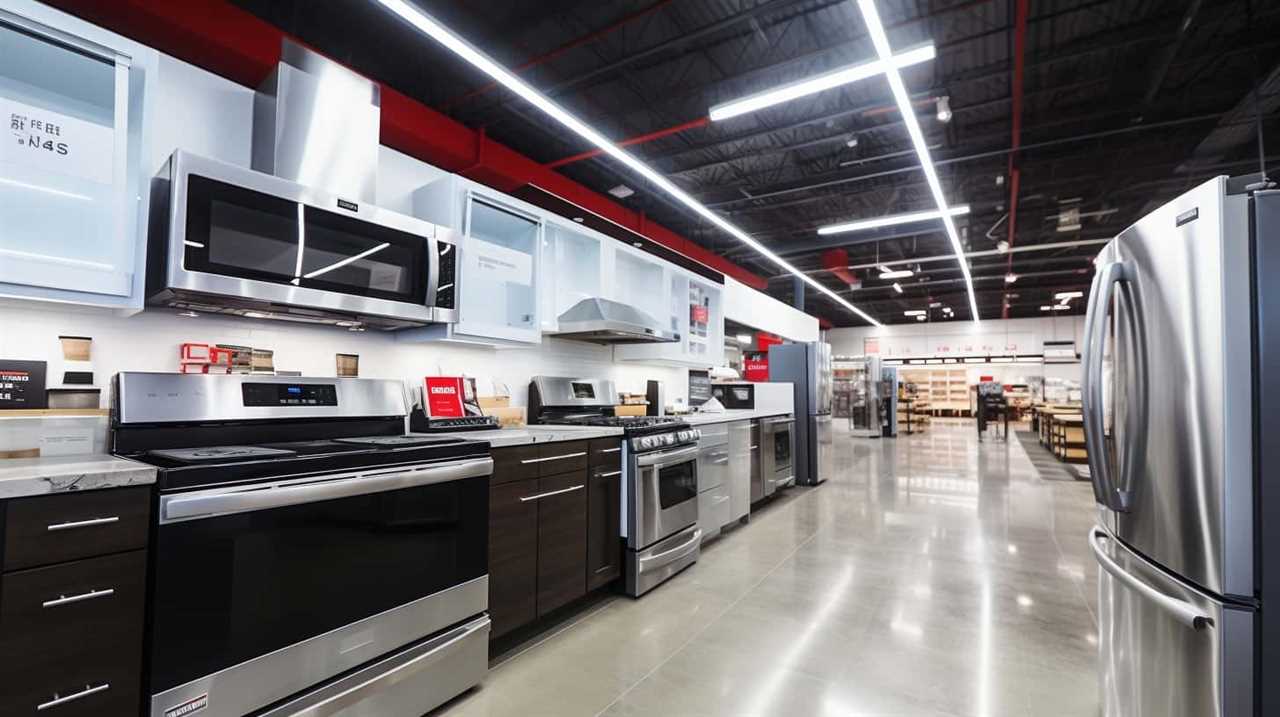
Can Electric Clothes Dryers Be More Cost-Effective Than Traditional Gas Dryers?
Electric clothes dryers can be more cost-effective than traditional gas dryers due to their lower energy consumption. Additionally, energy efficient air conditioners have a significant impact on reducing electricity consumption.
What Is the Average Lifespan of Space Heaters and How Does It Impact Their Overall Cost?
The average lifespan of space heaters greatly impacts their overall cost. It is important to consider energy efficiency when selecting a space heater to ensure that the average cost of running it remains reasonable.
Do Electric Ovens and Stoves Consume More Electricity When Used for Baking Compared to Regular Cooking?
When baking with electric stoves, energy-saving techniques can help reduce electricity consumption. By adjusting the temperature and using convection settings, we’ve found that baking efficiency can be improved, resulting in lower energy costs.
Conclusion
Based on our research, it’s evident that air conditioners, electric water heaters, and electric clothes dryers are among the most expensive electrical appliances to run.
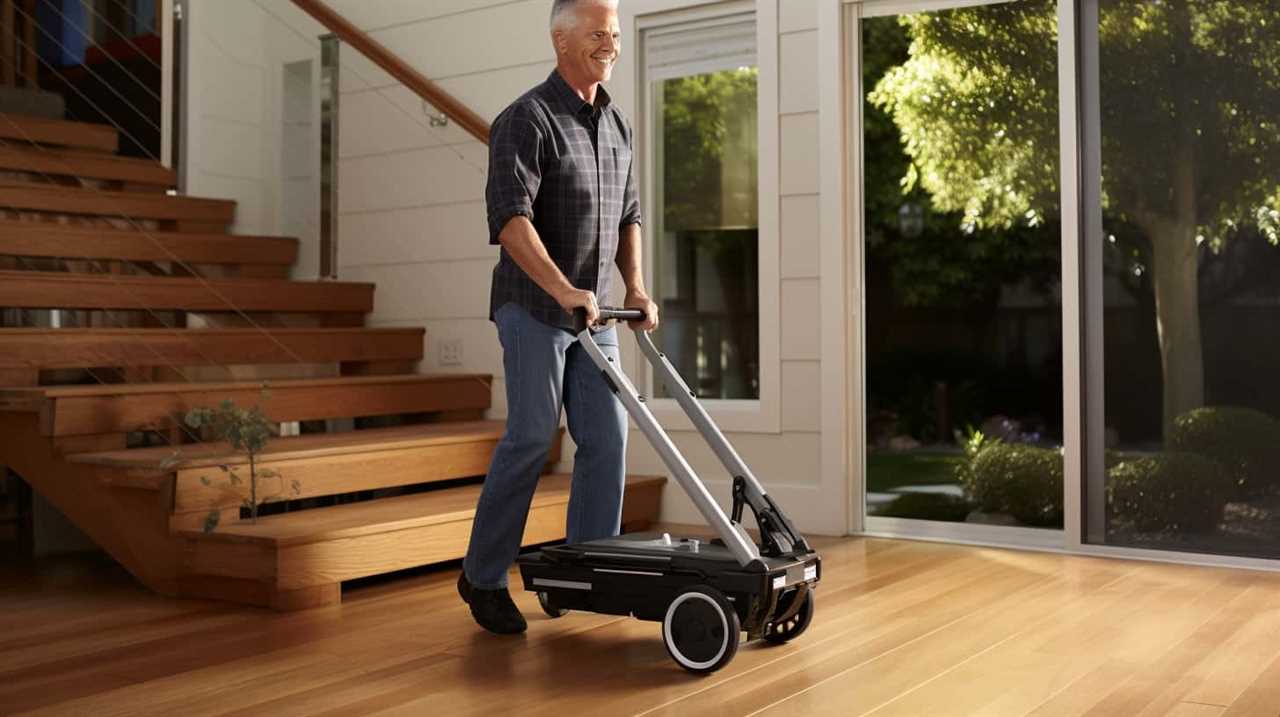
Additionally, space heaters, electric ovens and stoves, desktop computers, gaming consoles, and refrigerators and freezers also contribute significantly to electricity consumption.
It’s crucial for consumers to be aware of the energy usage and cost implications of these appliances to make informed decisions and adopt energy-efficient alternatives where possible.




